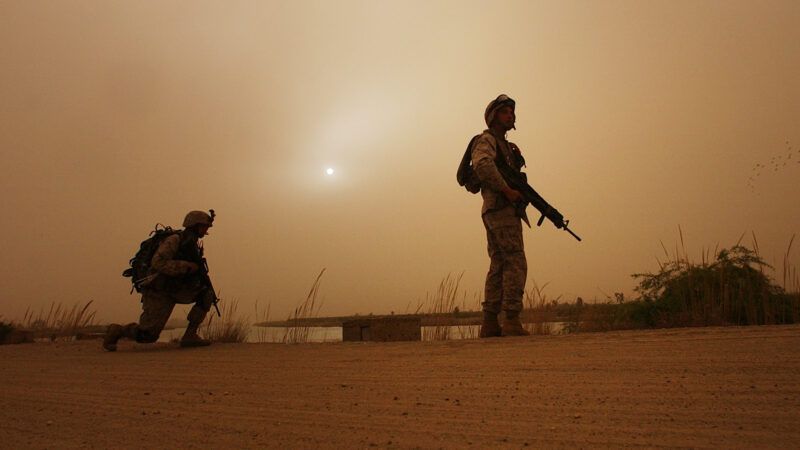Resolution To Repeal 1991 and 2002 Military Force Authorizations Advances to Senate Floor
It may look like Congress is reclaiming its constitutional war powers, but the president still has plenty of ways to justify his military actions.

The Senate Foreign Relations Committee voted yesterday to repeal the two laws that authorized America's wars in Iraq. The resolution will now progress to the Senate floor for a full vote.
Those laws, the 1991 Authorization for the Use of Military Force (AUMF) and the 2002 AUMF, were passed to give the president broad discretion in his military campaigns against Iraq. They authorized military action absent the approval of Congress, which the Constitution designates as the sole body allowed to declare war. Congress in recent decades has enacted AUMFs and other legislation that have slowly diminished its ability to oversee the U.S. military's involvement in conflicts.
Repealing the two AUMFs could, in theory, give some of that power back to Congress. But these are antiquated authorizations and repeal would be largely symbolic. The 1991 AUMF hasn't been invoked since the original Gulf War. The 2002 AUMF has never been the sole statutory basis for U.S. military operations and has instead bolstered the formidable 2001 AUMF, which was passed to authorize action against Al Qaeda and the Taliban. That measure has been used to justify counterterrorism operations in at least 19 countries, thanks to presidents' generous interpretations of its phrasing.
Because the 1991 and 2002 AUMFs don't undergird any current U.S. military conduct on their own, repealing them has been much more feasible than axing the 2001 AUMF. The administration has expressed its openness to replacing the 2001 and 2002 AUMFs with a "narrow and specific framework" governing military force, but given President Joe Biden's recent questionably legal airstrikes, it's unlikely he would cede a lot of power. AUMF reform might not limit executive war making, anyway—Biden hasn't invoked an AUMF to justify any of his attacks so far, instead relying on Article 51 of the United Nations Charter and Article II of the Constitution.
This year has seen plenty of AUMF reevaluation, with the House voting to repeal the 1957, 1991, and 2002 AUMFs in June. (The 1957 AUMF, signed by President Dwight D. Eisenhower, authorized force to counter possible communist hostility in the Middle East. It has never been used.) Members of Congress generally agreed that the first two are archaic.
But rolling back the 2002 AUMF has provoked some controversy. Sen. Ted Cruz (R–Texas) warned recently that it "will be used as justification for continuing to go soft on Iran." Sen. Mike Rounds (R–S.D.) has cautioned that "a full repeal of the 2002 AUMF, without a tailored replacement, will limit our ability to combat the malign influence of Iran in the Middle East."
Even without the broad discretionary powers granted by an AUMF, the president has ways to wage war. Repealing AUMFs could put some power back in the hands of Congress. Military engagement is unlikely to stop altogether under those constraints, but we could get more deliberation and discussion before a president unleashes it.


Show Comments (19)